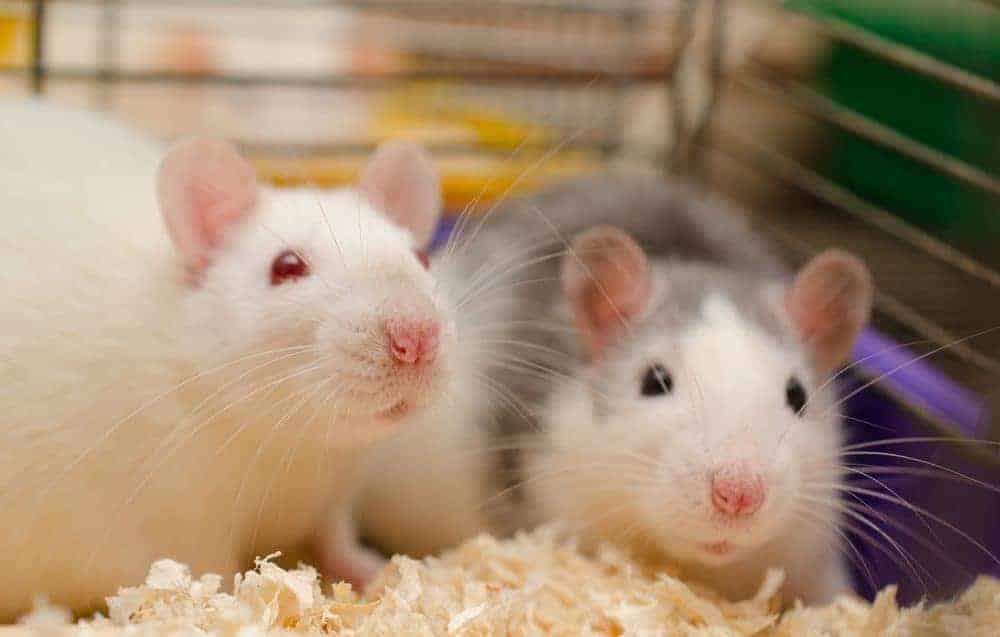
As the cleverest rodents on the planet, our pet rats deserve the very best nutrition. Giving them the right food is actually an essential requirement because rats need a range of essential amino acids, fatty acids, vitamins and minerals from their diet that they cannot produce themselves.
That’s why you should never feed them food designed for rabbits, guinea pigs or hamsters as these formulas simply won’t meet rats’ nutritional needs.
Picky eaters
And, while rats are omnivores – which means they’ll eat almost anything they can get their tiny paws on – as a responsible rat owner, it’s essential that you don’t let them. Rats are renowned for being selective feeders – for example, with muesli-style food, they’re likely to just pick out the bits they fancy and leave the rest. This puts them at risk of not getting all the nutrients they need.
The way to overcome this is to feed them an all-in-one food – Excel Rat Nuggets are ideal. They contain all of the nutrients your rats need in every tasty mouthful.
What’s more, with pet rats, it’s not just what you feed, but how you feed it. To encourage natural foraging behaviour and to keep those smart little ratty brains active, you need to make feeding time a bit of an adventure.
Foraging fun
Burgess In-house Vet, Dr Suzanne Moyes, says: “It’s all about enrichment, which facilitates natural behaviours such as climbing, tunnelling, foraging, chewing and gnawing. Enrichment is well established as a way of minimising stress-related behaviours and improving quality of life. Providing food and treats in innovative ways is a great way for rat owners to make their pets’ lives more interesting and rewarding by increasing cognitive problem solving and reducing boredom.”
So, try scattering rat nuggets around their accommodation and among fresh bedding for them to forage for. Hide some in an old rolled up sock, paper bag or cardboard tube for them to investigate, or push some into a pine cone for them to extract. Rats will happily dig in trays of chinchilla sand to find hidden favourite food items.
Variety is the spice of life
Rats also love variety, so adding some Excel Gnaw Sticks to the mix will go down a treat.
Also feed some fresh food every day – once in the morning and once in the evening as rats feed mainly at dawn and dusk. Choose a sturdy ceramic bowl (metal bowls can produce ultrasound noise that rats find disturbing) that’s not easy to knock over. This allows them to pick out and carry food and handle/eat it wherever they want. Every morning, take away any leftovers from the day before.
DID YOU KNOW?
Once confident in your company, rats will happily sit in your lap or on your shoulder, grinding their teeth to show they are quite content – this is called ‘bruxing’ and is similar behaviour to a cat purring. And, just like humans, rats laugh when they’re happy. This was discovered in the 1990s by neuroscientist Jaak Panksepp, who used a bat detector to make their ultrasonic chirps audible. Rats laugh when they play with each other and when they’re tickled. Laughing rats playfully seek tickling from people just like dogs urge their human to play.
Rats will enjoy small amounts of fruit and vegetables, along with a few sunflower seeds that they can manipulate in their paws while they eat. Also try the occasional cooled, hard-boiled egg – they’ll enjoy working out how to get it out of the shell. Give your rats a variety of appropriate food options, so that they have control over their own food choice. This is very important as rats are all individuals who often develop personal preferences for particular foods. Always provide multiple food items rather than just one to avoid competition among your rat pack. Also remember to count fresh food as part of their overall daily ration or you could end up with some rather tubby rodents.
Don’t panic if you spot your rats eating their freshly deposited droppings – this is a natural behaviour that helps them to absorb all the nutrients and minerals they need to stay healthy. Stopping this could cause nutritional deficiencies and health problems.
Don’t change diets overnight. Rats can be cautious of new foods, so introduce anything new on the menu gradually. Make sure new foods are given to your rats as a group, so individuals don’t smell different, which could cause aggression.
Foods to avoid are anything sugary or high in fat, such as dairy products. Foods that are harmful to rats include onion, citrus fruits, walnuts, rhubarb, grapes, raisins and chocolate.
Be water wise
The other thing that’s incredibly important for pet rats is plenty of fresh, clean water – from a water bottle, not a bowl. Without water rats become seriously ill. Check water bottles morning and evening to make sure they’re working properly, clean regularly to avoid algae/bacteria build-up and refill twice daily to ensure your ratty friends are never thirsty. It’s a good idea to have multiple water bottles available, so your rat pack can drink simultaneously, avoiding competition.
If you found this interesting, you may also like:
Join the rat pack
While they might have a unique appeal that not everyone can appreciate, rats are one of the cleanest pets you can own – and they even laugh when you tickle them...
Super smart hero rats have the wow factor
Rats are bright little rodents who are considered by experts to be one of the most intelligent animals on the planet. In some tasks, they’ve outsmarted humans and they’re even saving lives...
Bonding with your small pets
Hand-feeding is a great way to build a closer bond with small animals. It takes time to build trust, but when your little friend finally feels confident enough to take a treat from your hand, it’s a special moment. Our in-house vet Dr Suzanne Moyes has some tips...
Source: rspb.org.uk














